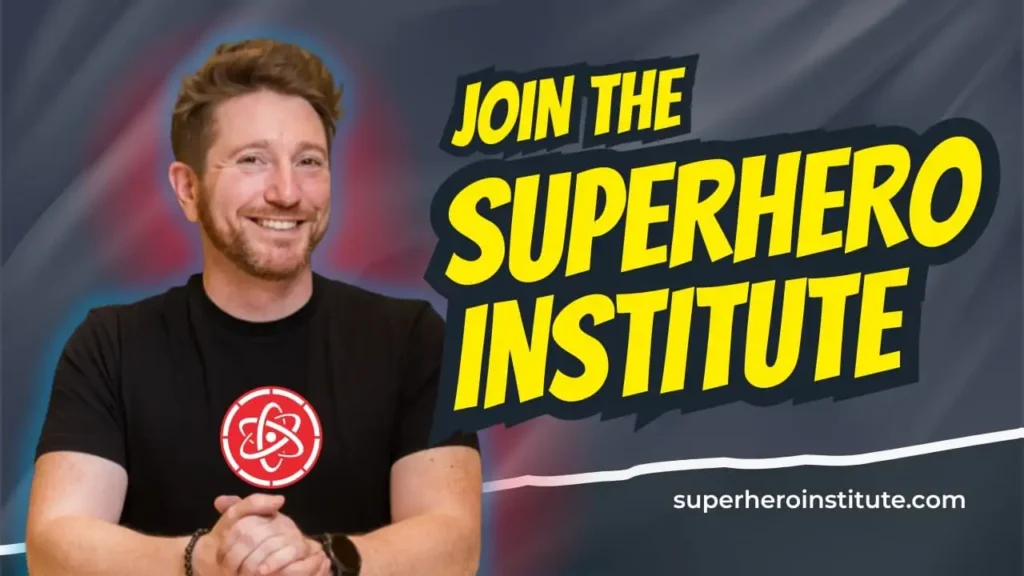Decisions, Decisions.
Maybe you can relate?
One of the recurring struggles of my life is figuring out how to maintain an effective balance between saying yes and saying no.
It can be easy to say yes in our zeal to people please or during a moment where something excites us. Yet, it can also be intoxicating to imagine saying no and protecting our time. Both yes and no have value.
- Saying no establishes boundaries and offers a sense of control over time and energy.
- But, saying yes is often the door to new opportunities.
- Saying no creates focus, letting one finish existing projects.
- But saying yes lets us help others.
- However, saying no lets others help themselves.
It is a fine line to walk.
✉️ Get the Infinite Impact
Join thousands getting weekly wisdom on unlocking hidden potential, building meta-abilities, and creating meaningful change through practical frameworks you can use immediately.
Wading in the Gray

Within this struggle, there are easy decisions and difficult ones.
- There are some requests or opportunities that are an obvious yes as they align with my goals and values.
- Similarly, there are opportunities and requests that are such an obviously bad fit that they would be worthy of a forceful and colorful worded decline.
It is the space between, what I would call “the gray area” that makes this such a difficult balance to strike. One way I’ve tried to solve this quandary is to design a decision algorithm for myself.
A Decision Algorithm
A good decision algorithm should help you arrive at a clear yes or no. It should create distinctions and make trade offs clear. It should remind you of what you’re out to achieve.
Here’s what I’ve got so far:
- Does this move me closer to working fewer days per month / measuring work in days per month? a. Work = trading time per money. b. Work ≠ Activity
- Does this align with the superhero goals? Will this advance the goal of making a kinder, safer, more equitable world?
- If I said yes to this, what would I have to say no to?
- If I decided to do this, do I have to do it now, or can it be put off until later?
- How much will this cost to do?
These are questions that help me stay locked into my goals and purpose, forces me to weigh the trade offs, while giving me some flexibility to say yes in the future, even if it’s a no right now.
Maybe, Still Say Yes?
There are a number of things I’ve said yes to, that have turned out to be a total waste of time or, in retrospect, an objectively terrible idea.
But, there is no denying I’ve also said yes to a significant number of things that I probably should’ve said no to. Here are just a few projects I started when I really didn’t have the time and no good reason to say yes:
- Partnering with Lou to launch The Post Pod Show (10 episodes in the first season).
- Launching and promoting Super Automated, before it was ready, to provide automation services to Agencies, Small Businesses, and Pharma/Biotech companies. This business has since been folded into Super Productive and is now fully up and running.
- Recording nearly 50 episodes of the Heroic Council Podcast with 3 other hosts.
- Becoming an Asana Pro (and launching an entire business around it — that is now my largest source of revenue).
- Taking on a team member before I could afford it.
- Hiring a second team member before I could afford it.
All of these were decisions that, had I analyzed them, I likely would’ve said no to. If I had run them through my five question algorithm, few would’ve passed. I didn’t have the time, the money, or a good plan for success.
And yet, each of these turned out to be a really good idea. Each produced either some great content, some reliable income streams, and/or a measurable improvement in my quality of life at work and at home.
Should you say yes or no?
I guess the bottom line is to remember that the pendulum is always swinging back and forth. Sometimes it feels like there’s too much on your plate, other times it feels like there’s capacity. Sometimes you feel the need to focus in and get serious, and other times you may need to play a little.
In the end there is no way to know the right answer for decisions that occupy “the gray zone.”

Sometimes you just have to say yes and see where things lead. You never know which one is going to be the decision you celebrate, and which the one you regret.
The only thing worth remembering, is that you get to make the decision.
I hope you enjoyed this post!
If you liked this post, then you will LOVE my newsletter (The Infinite Impact)
and my learning community (The Superhero Institute).


